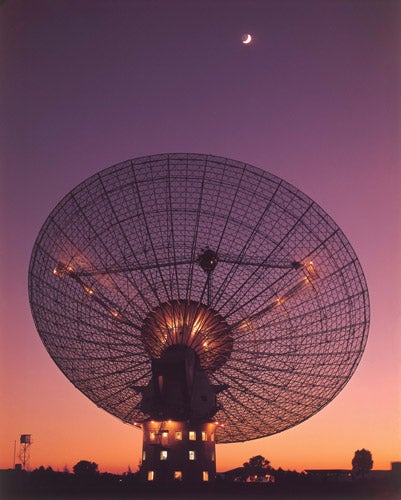Scientist warns the world to 'think twice before replying to alien signals from outer space'
Professor Matthew Bailes said 'the history of weak civilisations contacting more advanced civilisations is not a happy one'

A scientist responsible for finding signs of life on other planets has warned that human beings should probably think twice before making contact with aliens.
Professor Matthew Bailes is based at Swinburne University in Melbourne - and is leading Australia's efforts to find signs of extra-terrestrial life.
But he warned that making contact with aliens capable of transmitting powerful signals to Earth over tens of thousands of light years could lead humanity into disaster, because they're likely to be so much more advanced.
Earth 2.0: Nasa announces discovery of Kepler 452B
Stephen Hawking: There is 'no bigger question' than aliens
Philae lander has gone silent - forever?
Nasa teases discovery of 'another Earth'
"The history of weak civilisations contacting more advanced civilisations is not a happy one," he said.
Prof Bailes was recently put in charge of the Breakthrough Prize Foundation's $100m search for alien life, which is being financed by Russian billionaire Yuri Milner and is backed by Professor Stephen Hawking.
The team working on the project will use the Parkes radio telescope - one of the largest in the world - to scan the universe in what has been described as bringing a "Silicon Valley approach to the search for intelligent life".
The initiative will cover 10 times more area of sky than previous programmes, according to News24.
Prof Bailes told the news outlet that sophisticated computers would have to be installed at Parkes - which was the first telescope to receive transmissions showing Neil Armstrong setting foot on the Moon in 1969 - to sort through as many as a billion samples a second to try to detect patterns or likely signals.
"The difficulty is to know what sort of signal we are looking for," Prof Bailes said. "There is no manual on how to find aliens. We'll have to imagine the sort of transmissions an alien race might send."
The computers, he warned, would take a year to build, and the project has five years to run. But he said that the signal - if and when it arrives - would likely be quite feeble after travelling across such vast distances.
He said that scientists hope that aliens will send a pattern human beings would be able to recognise - such as prime numbers.
But he warned that we may all be "long dead and buried" before we worked out how to reply - and the aliens got an answer.
Join our commenting forum
Join thought-provoking conversations, follow other Independent readers and see their replies
Comments
Bookmark popover
Removed from bookmarks